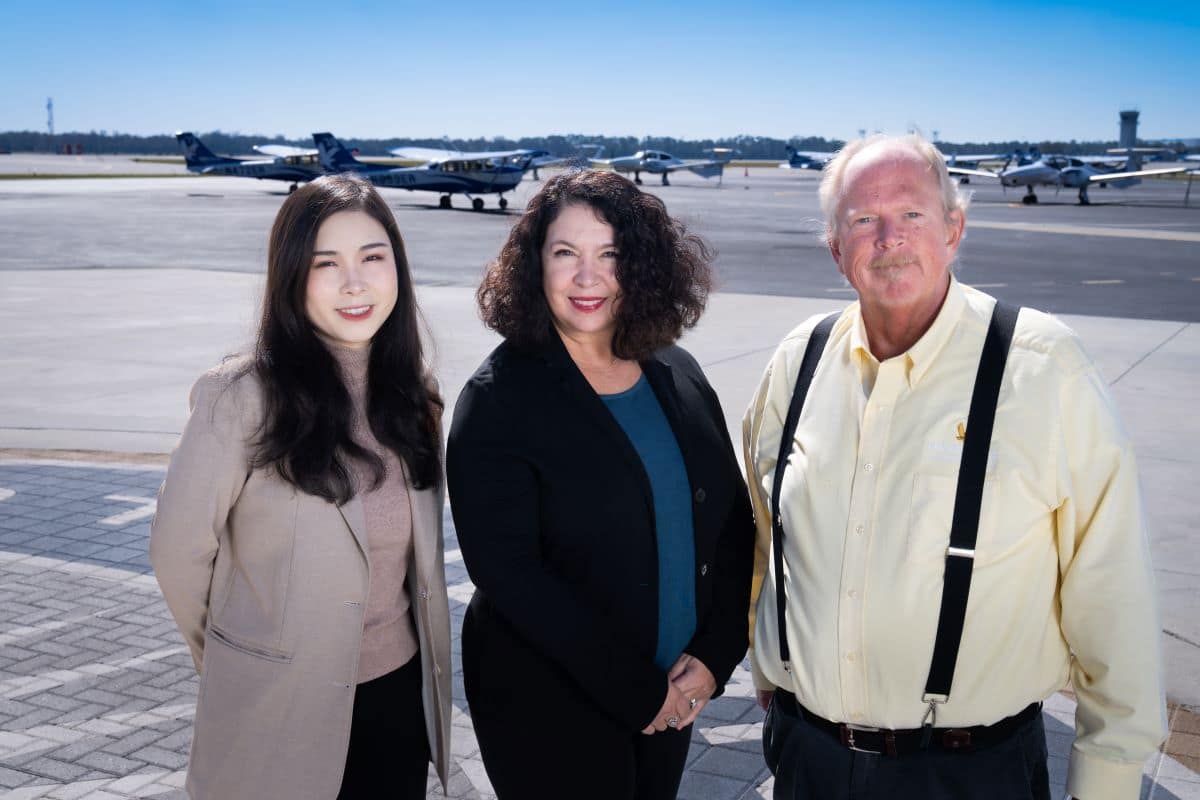$1 Million FAA Grant Supports Eagle Researcher in Improving Pilot Assessment Methods

Backed by a $1 million Federal Aviation Administration (FAA) grant, Embry-Riddle Aeronautical University Presidential Fellow Dr. Barbara Holder is working to develop more effective training programs that integrate pilots’ technical skills, such as operating aircraft controls, and non-technical skills, like decision-making and other skills traditionally called Crew Resource Management (CRM).
“The FAA wants airline operators to ensure that pilots are equally proficient in technical flying skills, such as hand-flying and autopilot operations, and non-technical skills,” said Holder, an associate professor in the College of Aviation, School of Graduate Studies. “Pilots employ both technical and non-technical skills together to perform effective and safe Flight Path Management (FPM) and, therefore, effective training and assessment of both is necessary.”
The FAA is especially interested in the cognitive aspects of performance — like judgment, flight path monitoring, attention management and task management — which can sometimes be difficult to measure.The goal of the research is to enable airlines to better assess and integrate the diverse skills their pilots possess.
“This work aims to bring pilot training and operational performance to a new level,” said Holder. “It has the potential to make training more effective and efficient, especially for new pilots.”
The research is particularly important, and timely, with pilot demographics rapidly changing, she added. Due in part to large numbers of senior-level pilots nearing the industry’s mandatory retirement age of 65, the Pilot and Technician Outlook projects a need for 602,000 new pilots by the year 2040.
“The FAA is interested in making sure pilots are highly proficient in all the skills and knowledge they need to do their job with excellence,” said Holder. “And that there are no gaps in their training.”
Improving the Status Quo
Work began in January on the three-year study, which will include plans to partner with three domestic airlines and one international airline.
“The team is reviewing the literature on cognitive proficiency assessment and engaging operators on how they currently assess pilot performance,” said Dr. David A. Esser, a professor in the Department of Aeronautical Science, who is working on the project with Holder. “This is to understand the lay of the land, so we can identify gaps to create new assessment methods.”
Aviation Ph.D. student Hui (Angel) Wang, who earned her master’s degree in Aeronautics and her bachelor’s in Air Traffic Management from Embry-Riddle, is also assisting Holder on the project.
“The first task is to conduct a baseline review,” said Holder. “Together with the literature review, we’re partnering with airlines to investigate how they currently assess these skills and to determine if their methods are effective.”
Interviews will be conducted with members of airlines’ training and standards leadership, including check airmen and instructor/evaluators in their training centers. During the second year of the project, the researchers will use the data they’ve collected to propose new training and assessment methodologies.
In the third and final year, the researchers hope to partner with one or two airlines to validate their improved techniques.
“My personal goal is to create an assessment methodology that’s effective, efficient and reliable, that integrates technical and nontechnical skills, and that represents how the practice of flying is performed when it is done well in real-world flight operations,” said Holder.
In the end, Holder hopes her research results in safer skies.
“Technical and non-technical skills are equally critical for safe and effective flight operations,” she said. “I’m hoping that this project will highlight the importance of all these skills and the importance of effective training. Ultimately, it’s the pilots who make flying safe and resilient, so their training must be effective.”

 Melanie Stawicki Azam
Melanie Stawicki Azam